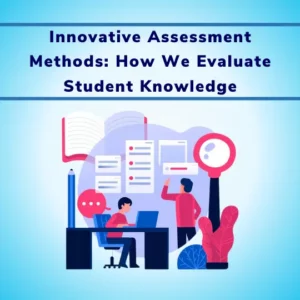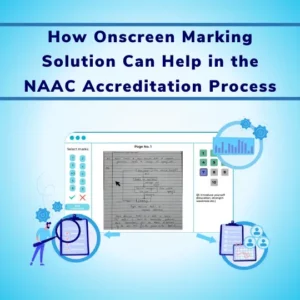Article Contents
What is Remote Proctoring?
Learning and assessments go hand in hand. Conventionally, the learning was being imparted in an educational premise with students and teachers, and assessments were conducted in a pen-and-paper mode.
The answer sheet checking, and evaluations – oral and otherwise were also done in a face-to-face manner. However, these conventional systems have undergone a paradigm shift.
Classroom-based education soon took the form of online learning, e-learning, or remote learning. Learning management systems further accentuated these efforts.
Similarly, assessments have transformed into online assessments. Remote proctoring came to the fore at this juncture.
This is the process used for proctoring or supervising candidates during an online exam.
In this process, the candidates are remotely monitored by the supervisors who are located at any other remote location with the help of technology.
This process is used to prevent candidates from cheating or carrying out any sort of malpractice during an online exam.
Let us learn about the concept of Remote Proctoring in detail.
What are the different types of Remote Proctoring?
Remote proctoring is a method of monitoring online exams in real-time to prevent cheating and ensure the integrity of the exam. There are several different types of remote proctoring mechanisms that can be used, including image-based, audio-based, and video-based proctoring, as well as other mechanisms.
Image-based proctoring involves using technology to capture and analyze images of the exam taker and their surroundings during the exam. This can help to identify any suspicious activities or behaviours that may indicate cheating.
Audio-based proctoring involves using technology to capture and analyze the audio of the exam taker during the exam. This can help to detect any unusual noises or conversations that may indicate cheating.
Video-based proctoring involves using technology to capture and analyze the video of the exam taker during the exam. This can provide a comprehensive view of the exam taker’s activities and behaviours, allowing for more accurate detection of any potential cheating.

360-degree proctoring is an advanced technology that has revolutionized the way online exams are conducted. This solution uses dual-camera streaming ability to provide a secure and fair evaluation process for students. It ensures that cheating or malpractice is eradicated, and students are assessed based on their knowledge and skills.
One of the significant advantages of 360-degree proctoring is its ability to detect any suspicious activity during online exams. The technology uses advanced algorithms to monitor students’ behaviour and prevent any unauthorized activity, such as copying or using prohibited materials. This ensures that the evaluation process is unbiased and fair, and students are evaluated based on their merit.
Other remote proctoring mechanisms may include the use of biometric data, such as facial recognition or voice analysis, as well as the use of artificial intelligence and machine learning algorithms to detect suspicious activities or behaviors.
Overall, different types of remote proctoring mechanisms can be used in combination to provide a comprehensive and practical approach to preventing cheating during online exams.
Remote Exam proctoring is useful to conduct assessments of candidates situated at any location.
How does Remote Proctoring work to prevent cheating during online exams?
Remote proctoring is a highly advanced method of monitoring and preventing cheating during online exams. It involves the use of a combination of different technologies and mechanisms to ensure the integrity and fairness of the exam.
The remote proctored test typically involves the use of technologies such as image analysis, audio analysis, and video analysis to capture and analyze the exam taker’s activities and behaviours during the exam. This can help to detect any suspicious activities or behaviours that may indicate cheating, such as the use of unauthorized materials or communication with others.
Overall, remote proctoring is a powerful and effective tool for preventing malpractices and fraud during online exams, helping to ensure the integrity and fairness of the exam process
What is the importance of Remote Proctoring during online exams?
Remote proctoring is a highly advanced and effective mechanism for preventing cheating and malpractices during online exams. It uses a combination of technologies and methods to monitor and analyze the exam taker’s activities and behaviours in real-time, allowing for the detection and prevention of cheating.
Remote proctoring Software may involve the use of technologies such as image analysis, audio analysis, and video analysis to capture and analyze the exam taker’s activities and behaviours during the exam. This can help to identify any suspicious activities or behaviors that may indicate cheating, such as the use of unauthorized materials or communication with others.
In addition to these technologies, remote proctoring may also involve the use of biometric data, such as facial recognition or voice analysis, to authenticate the exam taker and ensure their identity. It may also involve the use of artificial intelligence and machine learning algorithms to analyze the data and detect any potential cheating.
What is Artificial Intelligence powered Remote Proctoring and how does it work?
Artificial intelligence (AI) is a powerful tool for enhancing the integrity and fairness of online proctoring software. AI-powered techniques, such as facial recognition, object detection, and chatbots, can be used to monitor and supervise candidates giving online exams from a remote location.
Facial recognition technology uses AI algorithms to analyze the facial features of the exam taker and match them with pre-registered images to authenticate the identity of the exam taker. This can help to prevent impersonation and ensure that only authorized exam takers are able to access the exam.
Object detection technology uses AI algorithms to identify and track objects in the exam taker’s environment, such as smartphones or unauthorized materials. This can help to prevent the use of such objects during the exam, ensuring that the exam is fair and free of any malpractices.
Chatbots are AI-powered software programs that can simulate human conversation and provide real-time support and assistance to exam takers during the exam. This can help to address any technical or logistical issues that may arise during the exam, ensuring that the exam is completed smoothly and efficiently.
Overall, AI-powered techniques can be highly effective in maintaining the integrity of online proctored exams and ensuring a fair and consistent experience for all exam takers.
Why is Remote Proctoring essential for educational institutions?
As more and more educational institutions are switching to online modes of teaching and learning, the use of remote proctoring is becoming increasingly important. Remote proctoring is a technique that enables educational institutions to conduct online proctored exams in a secure and reliable manner, ensuring the integrity and fairness of the exam process.
Remote proctoring involves the use of advanced technologies and methods to monitor and supervise the exam taker during the online exam. This can include technologies such as image analysis, audio analysis, and video analysis to capture and analyze the exam taker’s activities and behaviors during the exam. It may also involve the use of biometric data, such as facial recognition or voice analysis, to authenticate the exam taker’s identity.
In addition to these technologies, remote proctoring may also involve the use of artificial intelligence and machine learning algorithms to analyze the data and detect any potential cheating or malpractices. This can help to ensure that the online exam is free of any cheating or other unfair practices, providing a fair and consistent experience for all exam takers.
Overall, remote proctoring is an essential tool for educational institutions that are conducting classes and exams in online mode, enabling them to conduct exams securely and reliably.
What are the steps to authenticate candidates during online exams with the help of Remote Proctoring?
Here are a few easy steps that can help you to avoid fraud and maintain integrity while authenticating the candidates before starting the exam.
Frequently Asked Questions about Remote Proctoring
Can a proctor see your screen?
Conventionally, invigilators are used to keep an eye on the candidates appearing in the exams. With remote proctoring, the concept, objective, and end goal remain the same. Online exam management systems enable remote proctors to gauge candidates’ real-time activities remotely in a seamless manner. Candidates’ background applications are already disabled, and the exam screen is locked.
Remote proctors can keep an eye on online examination candidates with audio/video recording, live streaming, and other features. They even have the authority to terminate, pause, and resume online exams if the candidates are found attempting to cheat.
Can proctored exams hear you?
The whole idea of exam proctoring is to ensure that the online examinations are conducted in a controlled, and cheat-free environment. And, audio and video tracks are integral to this.
Online exam management software that comes equipped with remote proctoring capabilities often ensures the same. So, yes, the remote proctor can hear the candidates’ activities throughout the exam lifecycle.
What is proctoring software?
Proctoring software is the applications that aim at ensuring that online examinations are conducted in an easy, quick, and hassle-free manner without involving a physical invigilator.
These systems ensure that the candidate activity tracking is done remotely and in an automated manner. These are cost-effective, convenient, and comprehensive too.
Does remote proctoring track eye movement?
Remote proctoring features of exam management systems do track the real-time activities of candidates. While they do record audio/video, and recognise the facial features of the candidates, tracking eye movements are yet to be ensured.
What does remotely proctored exam mean ?
Being proctored is equivalent to being watched by someone remotely. Though it may sound a bit creepy at the outset, in the online exam ecosystem, proctoring plays a pivotal role. The remote proctor can easily track the real-time activities of the candidates, chat with the candidates LIVE, and take action as needed during the exams.


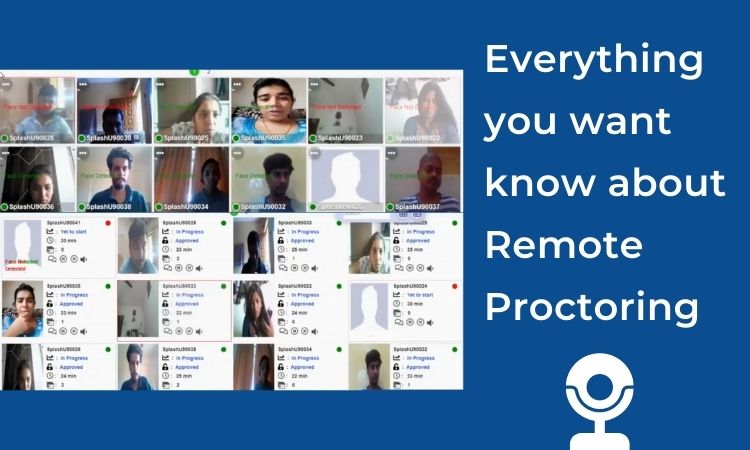
![How Government-Led Exams at 250+ Locations Are Setting New Standards of Integrity [Case Study]](https://www.eklavvya.com/blog/wp-content/uploads/2024/04/Enhancing-Exam-Integrity-Government-Certification-in-250-Locations-150x150.webp)
![Transforming Central Govt. Exams Evaluation: How Onscreen Marking is Leading the Charge [Case Study]](https://www.eklavvya.com/blog/wp-content/uploads/2024/04/How-Onscreen-Marking-Revolutionized-Central-Govt-Exams-Case-Study-1-150x150.webp)
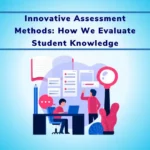
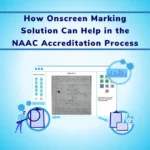
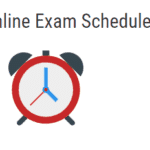

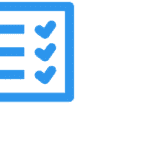







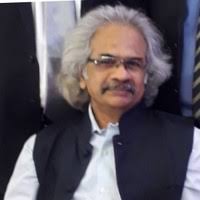

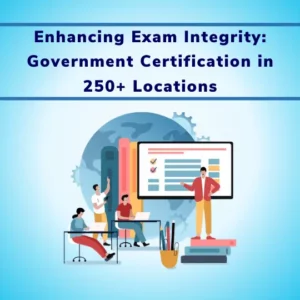
![How Onscreen Marking Revolutionized Central Govt Exams [Case Study]](https://www.eklavvya.com/blog/wp-content/uploads/2024/04/How-Onscreen-Marking-Revolutionized-Central-Govt-Exams-Case-Study-1-300x300.webp)
